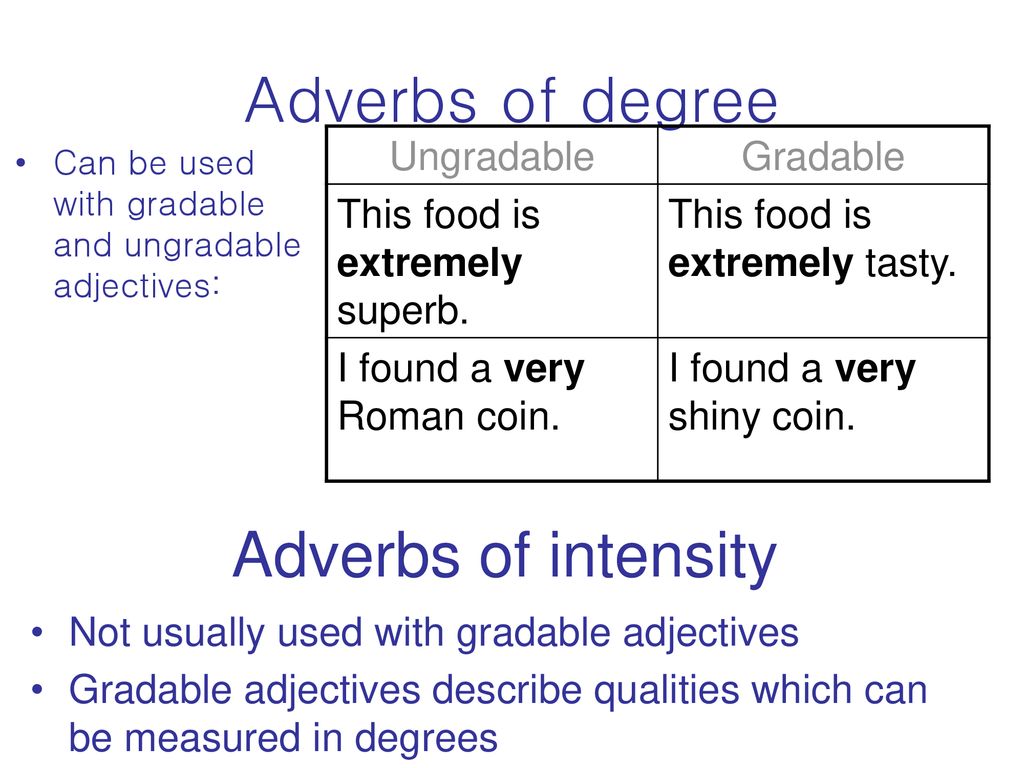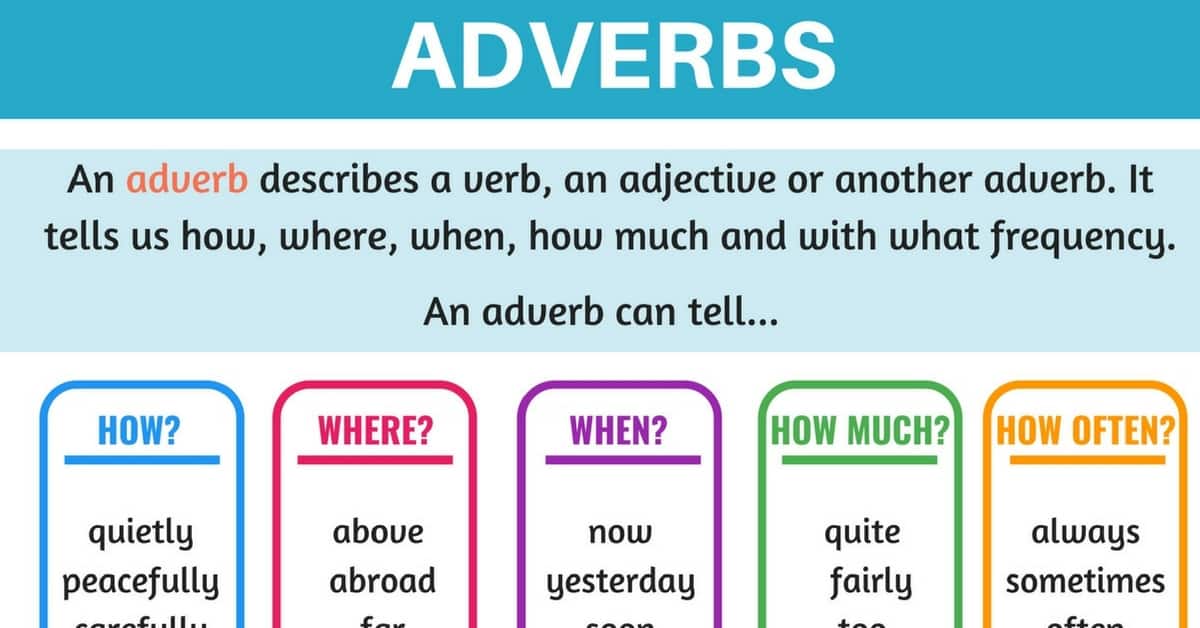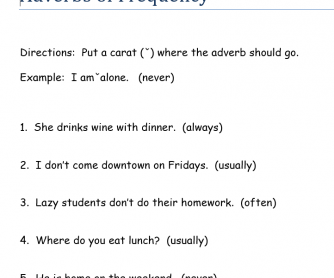Adverb Of Intensity Examples Sentences : What Is Adverbs Of Intensity Know It Info : Examples · he didn't work hard enough to pass the exam.. She was too excited to sleep. Very, extremely, greatly, highly, severely, terribly, awfully, exceedingly, fiercely, seriously, uncommonly, achingly, almighty, archly, awful, badly, beastly, blisteringly, bone, colossally, corking, cracking, dang, deadly, desperately, eminently, enormously, especially, ever, exceeding, exceptionally, extra, fabulously, fantastically, far, filthy, frightfully, full, heavily, hugely, immensely, incredibly, jolly, majorly, mightily, mighty, monstrous, mortally, most, much … more This clause is a group of words, or an entire. Its place in the sentence tells us if 'down' is functioning as a preposition or as an adverb. An adverbial phrase is formed when an adverb's intensity is modified by another adverb.
For more, let's see adverbs of degree functions and examples. For example, the adverb 'down' can be a preposition and an adverb. Other common adverbs of intensity are almost, completely, and enough. Hot, hotter, the hottest the adjective hot is gradable. Functions and examples of adverbs of degree.

· examples of adverbs that increase the severity of a situation include:
Almost, little, enough, much, too,. Adverb examples with example sentences to learn adverbs of time, place, manner, frequency, and degree. For example, too hot or extremely happy or hardly heard. Complete the sentence with a degree adverb. And (3) temporal adverbs that add information about timing (soon, early, late). These examples of adverbs have different functions to play and rules to live with. The adverbs in this group are always positioned in front of the adjective (which they intensify). It is rather cold today. Like other adverbs, these adverbs are also used to modify and qualify verbs, adverbs, and adjectives. Adverbs of degree tell us about the intensity or degree of an action, an adjective or another adverb. Remember that the adverb is placed after the verb and describes how it is done. When a sentence contains more than one verb, place the adverb of frequency before the main verb. Extremely (the soup was extremely hot.) quite (he wasn't.
Very, extremely, greatly, highly, severely, terribly, awfully, exceedingly, fiercely, seriously, uncommonly, achingly, almighty, archly, awful, badly, beastly, blisteringly, bone, colossally, corking, cracking, dang, deadly, desperately, eminently, enormously, especially, ever, exceeding, exceptionally, extra, fabulously, fantastically, far, filthy, frightfully, full, heavily, hugely, immensely, incredibly, jolly, majorly, mightily, mighty, monstrous, mortally, most, much … more And (3) temporal adverbs that add information about timing (soon, early, late). It is rather cold today. These examples of adverbs have different functions to play and rules to live with. Adjectives describe qualities (characteristics) of nouns.

The adverb precedes the verb.
Awfully, extremely, highly, perfectly, remarkably and terribly.these adverbs can also be used to modify an adverb. Examples · he didn't work hard enough to pass the exam. Whereas the preposition is put before a noun and is not used to describe the verb. She was too excited to sleep. An adverbial phrase is formed when an adverb's intensity is modified by another adverb. The kids love playing together in the sandbox. Adverbs of intensity are usually placed before the adjective, adverb, or verb that they modify, although there are some exceptions. Here's a list of sentences with the adverb phrase in bold: Rather hot, hot, very hot; Adverb phrases don't always contain an adverb and can start with a preposition or the infinitive form of a verb. The adverbs in this group are always positioned in front of the adjective (which they intensify). Adverbs of degree describes the intensity of something. These are the adverb of place, time, intensity, manner, negation, purpose, affirmation, and frequency.
· examples of words that. Adverbs of degree are used to indicate the intensity, degree, or extent of the verb, adjective, or adverb they are modifying. Adverbs of degree tell us about the intensity of something. They have often visited europe. These examples of adverbs have different functions to play and rules to live with.

In the sentence 'too' is an adverb of intensity, modifying the verb 'cold' and stating its intensity.
In the sentence 'too' is an adverb of intensity, modifying the verb 'cold' and stating its intensity. When a sentence contains more than one verb, place the adverb of frequency before the main verb. The subjectivity of adverbs of intensity with adverbs of intensity, you give color to a text: Definition of adverbs of degree: Let's look at some sample sentences:. Adverbs of degree describes the intensity of something. For more, let's see adverbs of degree functions and examples. Degree adverbs are words that describe the intensity of a particular adjective, verb, or adverb. Functions and examples of adverbs of degree. For example, too hot or extremely happy or hardly heard. Here is a brief explanation of the meaning each has, along with example sentences using each type of adverb. An adverb is a word used to modify verbs and adjectives. It is rather cold today.
